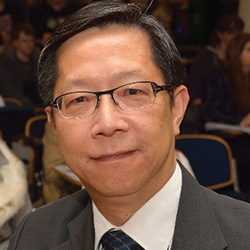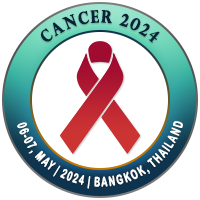
Samuel M.Y. HO
City University of Hong Kong, Hong KongTitle: Self-Appreciation of Depreciation and Growth among Cancer Survivors
Abstract
Aims and Theoretical Background:
It is widely recognized that many cancer patients report positive changes, often referred to as posttraumatic growth (PTG), during or after cancer treatment. This presentation aims to address two questions:
(1) Does PTG represent a genuine and constructive change or a maladaptive coping mechanism to cope with difficulties?
(2) Can cancer survivors simultaneously report positive (PTG) and negative changes (posttraumatic depreciation, PTD)? If so, what is the relationship between PTG and PTD?
Methodology and results:
The findings of three studies will be presented. First, a 7-year longitudinal study conducted among 84 breast cancer survivors in Taiwan showed three posttraumatic growth trajectories, including the illusory, constructive, and distress patterns (Cheng, Ho et al.,2018). The researchers conducted a follow-up study one year after the first study and reported that only survivors with the constructive trajectory pattern exhibited positive outcomes (Cheng, Wang, and Ho, 2020). In a recent study, the presenter reported that cancer survivors exhibited PTG and PTD with an inverted U-shape relationship between the two constructs (Ho, Cheng, et al., 2021).
Practical applications:
(1) Illusory PTG may provide short-term coping to reduce distress but may lead to long-term adverse effects.
(2) PTD provides information on potential cognitive distortion for Cognitive Therapy (CT). PTG provides a more comprehensive picture of the phenomenological world of the survivors to guide other modalities of intervention, such as supportive-expressive therapy (SET).
Value and Limitations:
Research findings over 12 years will be presented. No similar results were available, especially among cancer patients and Asian populations. The results should help us understand people's post-COVID era psychology responses. However, further studies should be conducted to confirm the generalizability of the findings to other cultures and types of adverse events.
Biography
Samuel M.Y. HO’s research and clinical practice focus on resilience and traumatology. He has developed in-depth knowledge about the factors that facilitate adjustments to traumatic events such as the diagnosis and treatment of cancer. He is a Clinical Psychologist in Accredited Register in Hong Kong and serves as an advisor of many organizations. Prof Ho is currently a Professor of Psychology of the Social and Behavioural Sciences Department at the City University of Hong Kong (CityU).

